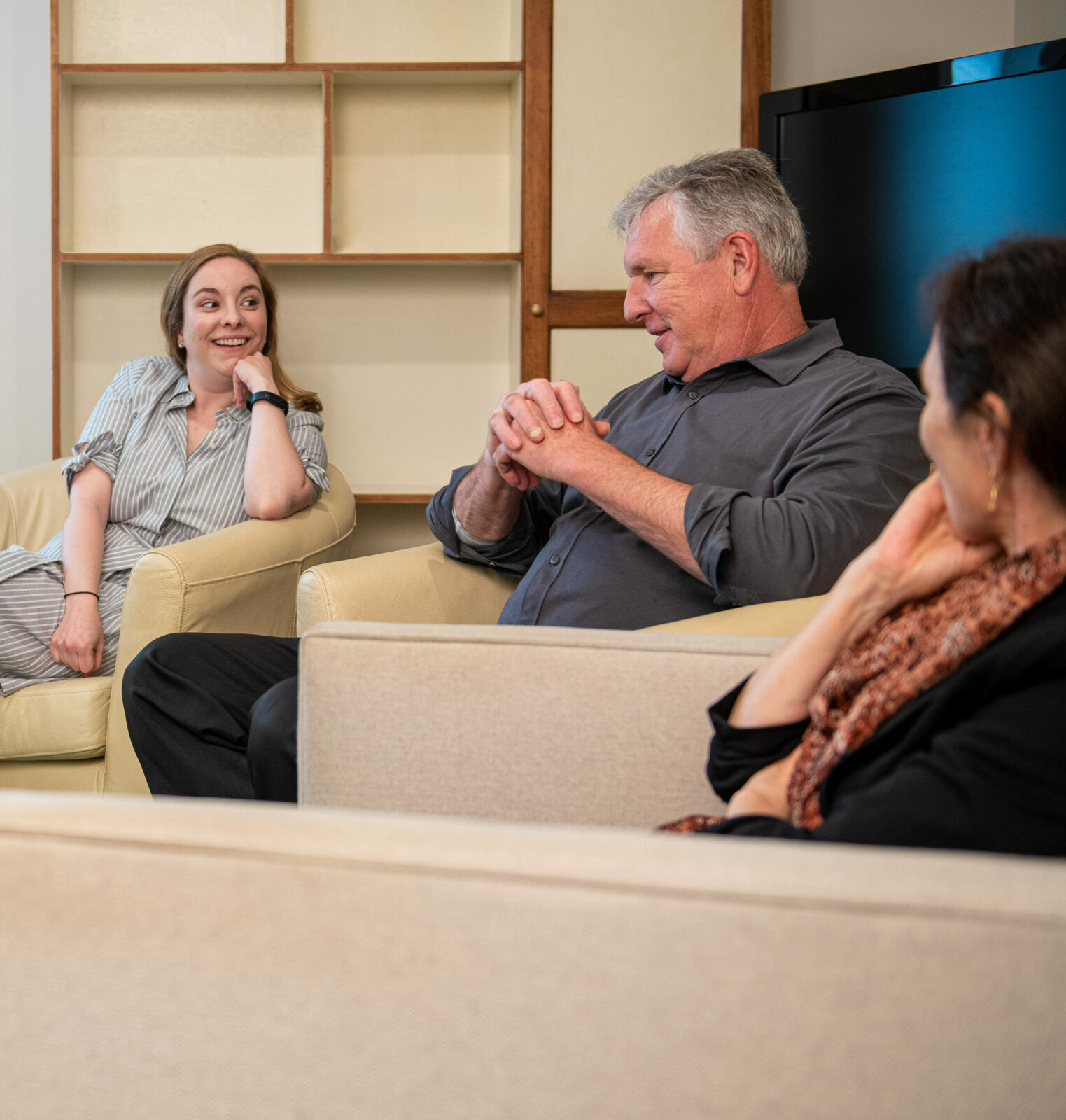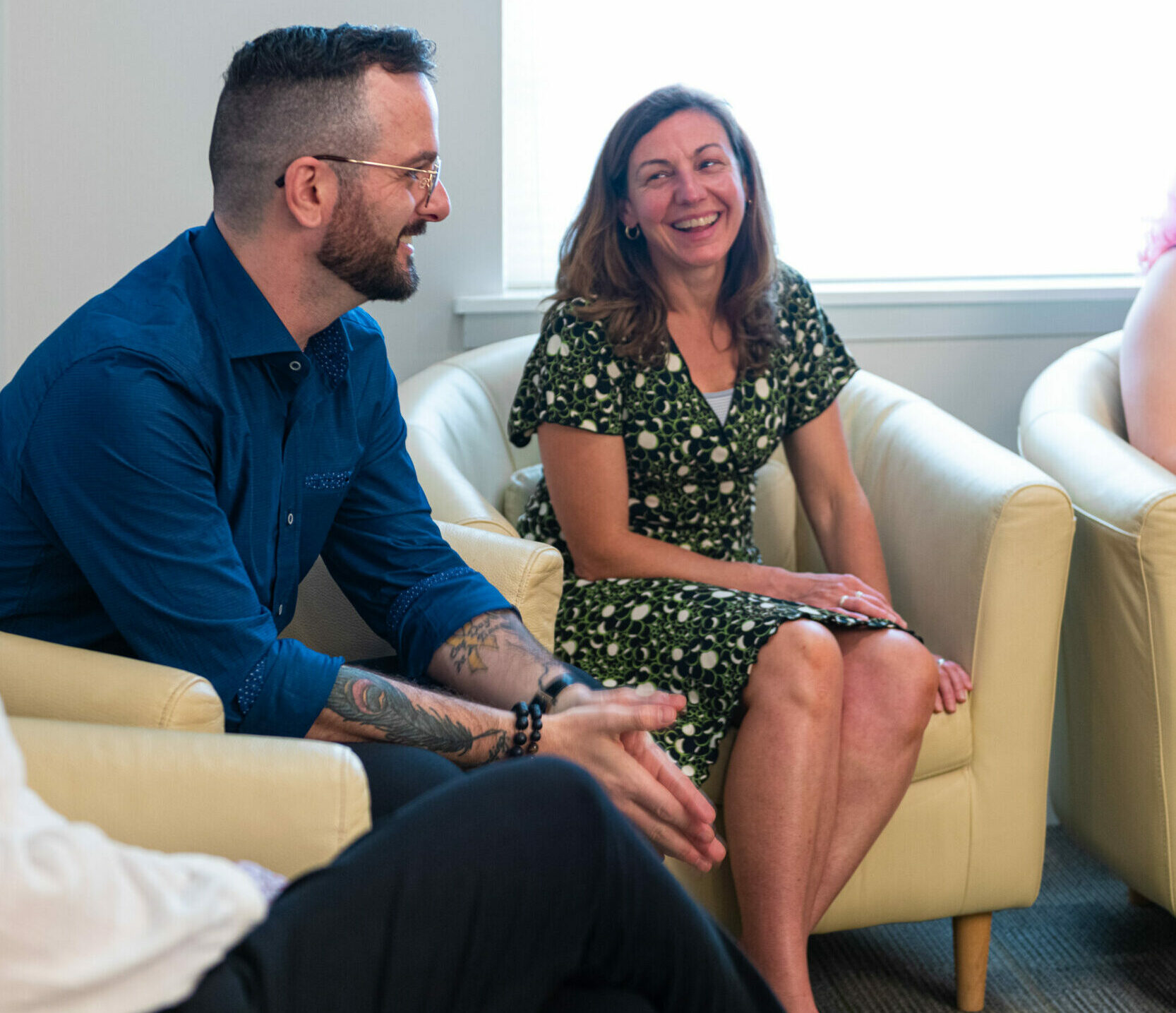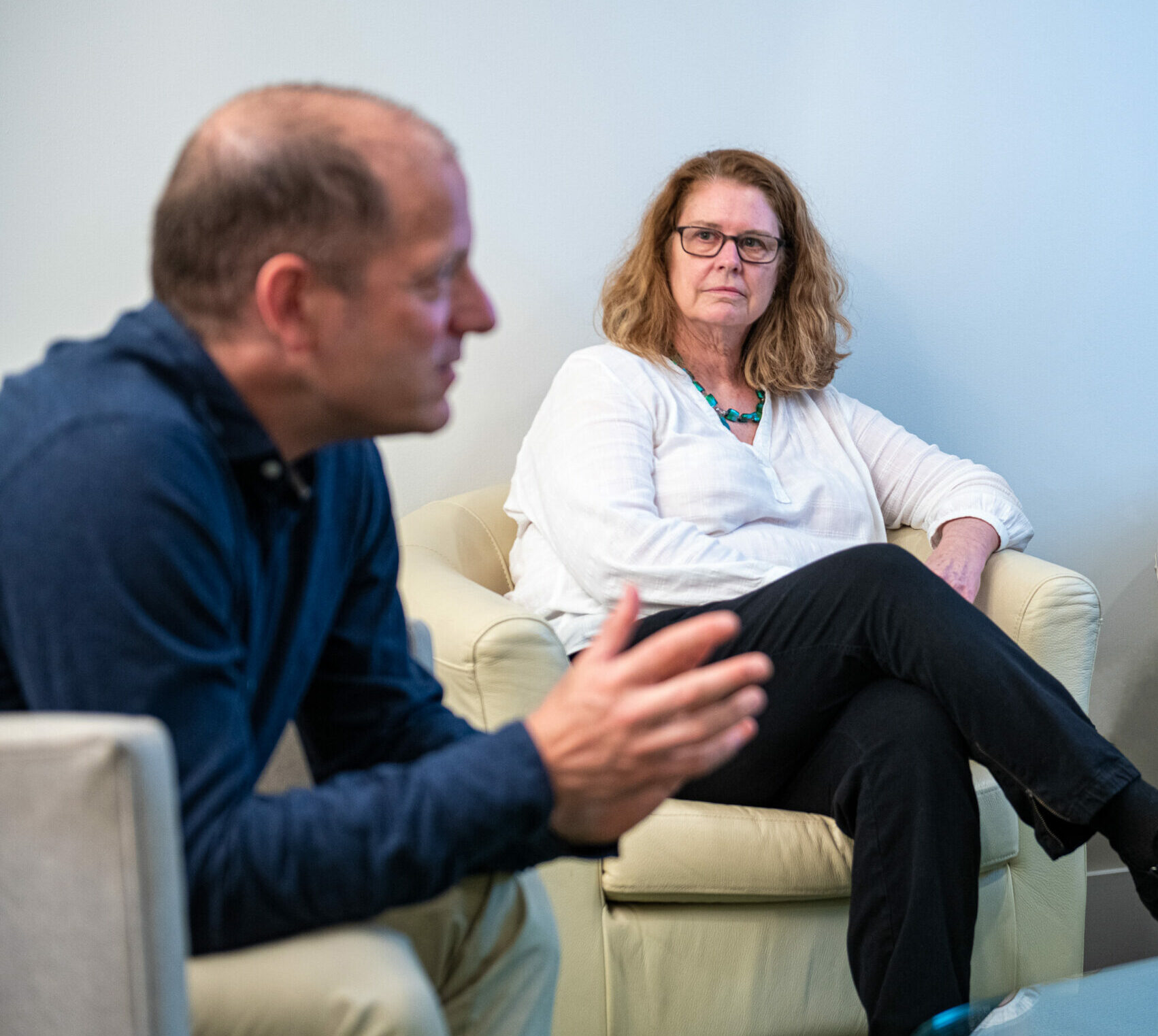Psychotic disorders
For many years medications have been the chief intervention for psychosis, a state that can be so hard to understand that loved ones and treaters often give up trying. That can leave those suffering symptoms feeling more alienated, and it misses a valuable opportunity for collaboration and connection.
Our goal is beyond stabilization to recovery and thriving. We combine the most subtle medication use with individual and family approaches that have been shown to radically reduce suffering and relapse.


Brief psychotic episodes, schizophrenia & schizoaffective disorders
Psychosis is not so different from other high-stress states. We all react to stress differently. Some cry, some use drugs, and some become paranoid. In fact, paranoia is a normal and completely understandable reaction when we feel unsafe. Appreciating the triggers, the feelings beneath the paranoid thoughts, and sticking close to shared goals collaboratively orients the treatment towards self-esteem and connection.
These experiences happen infrequently or as a one-off transient events that leave everyone – patient and family – terrified, uncertain about the causes and risks. Sometimes patients don’t have insight into what was reasonable thinking and what was out of touch with reality. The experience is compelling and can make sense from the inside.
With the right approach, people can choose to direct their attention to value-based living, and stay grounded and effective in the World. With information and support, and often medications for a time, it is completely possible to recover fully and live a full, productive life, perhaps even fuller for traversing such extraordinary states. Our team works together with you to provide clear, concise support through schizophrenia and schizoaffective disorders.
Co-occurring addiction
At our center, we specialize in treating psychotic disorders and co-occurring addiction. We provide a supportive and compassionate environment where you can get the help you need to overcome these challenges. We understand that psychotic disorders and addiction can be incredibly difficult to cope with. That’s why we provide compassionate, expert care to help you get your life back on track.
We are the only psychiatric clinic in the area that specializes in both psychosis and addiction. We have a team of experts who can provide you with the care and support you need to recover.

Teaching families to cope better LEAP, CRAFT & other approaches
Paranoia and psychosis are present a lot more than commonly realized, and are often transient. Paranoia’s a normal part of life, essential to keeping us safe in novel or ambiguous situations, but prone to becoming rigid, alienating us from people that could be soothing, and interfering with functioning. It’s a loss of perspective, of the grounding that helps us distinguish fantasy, wondering, and worry from conviction and certainty of erroneous ideas. Sometimes there are hallucinations or delusions. Medications are often helpful, and individual and family therapies can make this an event rather than a prolonged state.
At our core, we believe that secure attachment with people we love brings contentment and reduces stress reactivity and, so, all psychopathology. Addictions, depression, paranoia, anxiety, and pain – all reduce with secure connection.
We offer programs and services to help families cope better with the pain fear and loneliness that mental illness brings. Mental illnesses develop for complex reasons involving genetics, early experiences, and factors beyond our knowledge. It happens in all families and is hard to predict. However, effective strategies for communication, support and stress management profoundly impact recurrence and relapse. It’s one of the most malleable factors we have.
Families should be defined by love and support. But if a loved one is psychotic the family may be reactive, controlling and critical in an effort to protect, just as happens in addictions. Families may start behaving in ways they would normally eschew, and miss the opportunities for nurturing connection and bolstering self-esteem.
With education and coaching in the manner of CRAFT or LEAP, a family can be much more effective and leverage their nature of love, support and connection.
We are fortunate to have Drew Welch RN lead this team. He is widely regarded and sought out by families across the world for his careful attunement, kindness and skill in these models.
LEAP: Listen, Empathise, Agree, Partner
One of the approaches we respect and teach families is the LEAP approach, developed by Xavier Amador, a fine researcher and clinician who conceptualised the ‘lack of insight’ that is the hallmark of psychosis as a neuropsychological condition akin to anosognosia, or a lack of awareness of deficit. This shift permits families to appreciate that finding the right logic will not be successful in having the loved one with psychosis to see the light. Instead, a patient return to basics is adopted: listening, deeply empathising with the feelings so that people feel fully understood and de-escalate. There is an explicit direction to agree – not necessarily with a hallucination or delusion, but with the feelings beneath: the fear, the confusion, the concern. Then a collaborative plan can be developed, one that focuses on shared valued goals and allies the family towards well-being and success.
CRAFT: Community Reinforcement Approach, Family Therapy
Another model we draw from is the CRAFT model, though we have modified this for use in psychosis. We see the family (or partner) as separate from the person at the center of concern, even if – or perhaps especially if – that person is disinterested in treatment for themselves. We train the family in effective communication, collaborative problem solving, self-care, healthy limit-setting and positive encouragement of healthy goals. Instead of making decisions based on fear, which can produce nagging, cajoling, forcing, criticism and alienation, families can use what works. It’s hard to do well, but we do, And it’s one of the most important tools we have. It is astounding what a difference this makes.
Collaborative & respectful treatment
We understand that psychotic experiences can be difficult and isolating. We work to provide support and resources so that people with these experiences can feel validated and empowered. We are focused on your valued goals, and will help you mobilize your strengths and leapfrog challenges on your path to success. Stress management, moderation or cessation of drug or alcohol use, judicious use of medications – all these serve your goals and should be transparent and sensible to you.
Our team of experts is dedicated to helping patients get to the root of their condition and find effective treatment. We provide support and care every step of the way.

The role of trauma
Trauma can be a major factor in psychosis. Psychosis may develop as a coping strategy to protect us from experiencing or reliving severe trauma. We get it. We’re here for you. You are not alone in this.
Our knowledgeable and supportive staff will help you understand and cope with the impact of trauma on your mental health. We don’t just focus on behaviour change or symptom management. We go to the root of the problem to provide lasting recovery.
